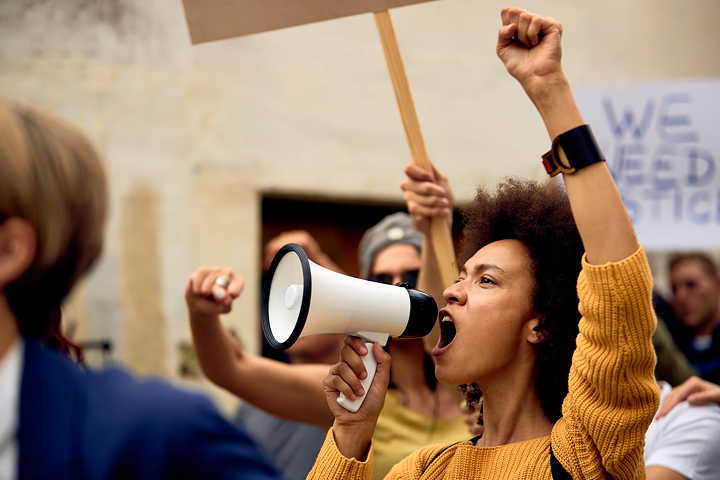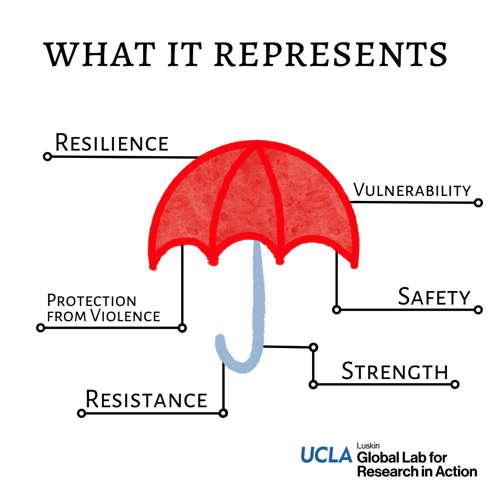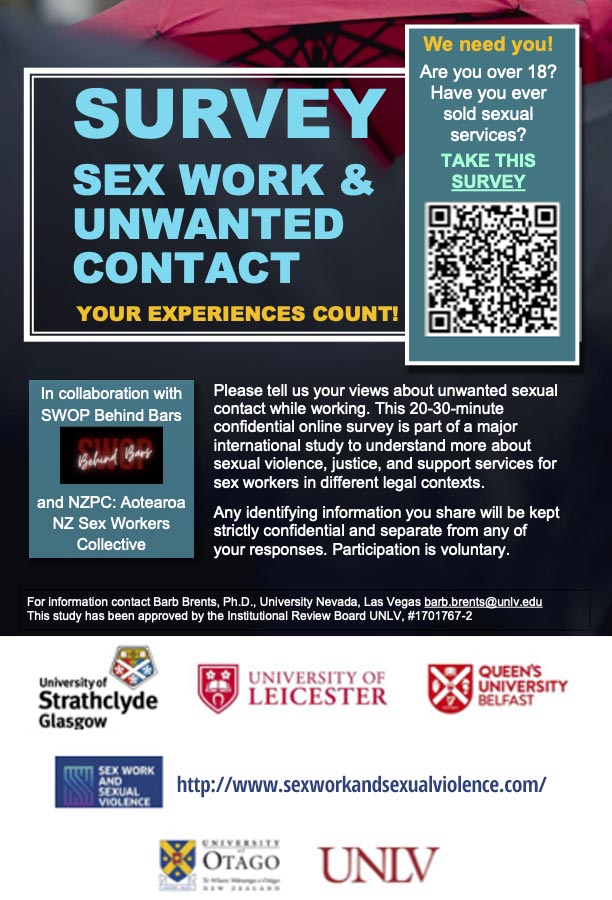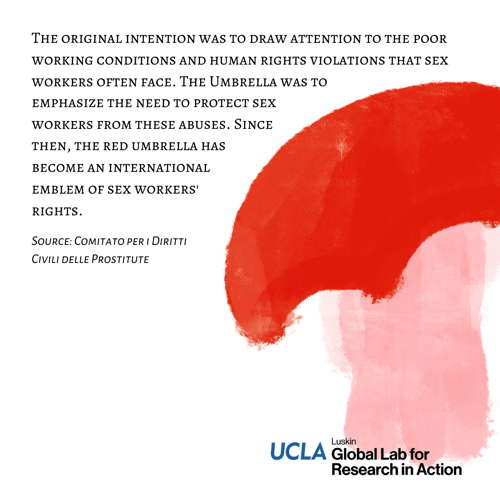September 27, 2022
The Equality Model is a harmful policy for governing sex work that functions by criminalizing the act of purchasing sex, but not selling it. Also known as the Nordic Model, the End Demand Model, and the Swedish Model, DSW refers to this framework as the Entrapment Model.
 How Does It Work?
How Does It Work?
To put it in simple terms, the Entrapment Model makes buying and soliciting sex illegal, but does not criminalize selling it. Under this framework, sex workers don’t face legal repercussions for participating in the sex trade, but their clients do.
Supporters of this model see it as the most effective way to end human trafficking, as it does seem to protect sex workers from the scrutiny of the law. However, this isn’t the case.
The Entrapment Model is extremely harmful to the safety, livelihood, and well-being of sex workers and their communities.
Here’s how.
1. It keeps sex work dangerous.
The truth of the matter is that regardless of anyone’s opinion on the morality of sex work, it is work. It’s an occupation that many people rely on to financially support themselves and their families.
Just as with any other job, sex workers deserve access to safe working conditions.
Criminalizing the clients of sex workers only makes it more difficult for them to operate safely by forcing them to work in secret. It narrows their choice of clients, making them more likely to take dangerous risks in order to earn money. This could include working in unsafe locations, accepting unfair pay, engaging with violent clients, or pressuring them to work for unwanted third parties.
2. It promotes unfair and oppressive stereotypes.
The Entrapment Model functions by perpetuating harmful negative tropes, associating sex work with immorality and victimization, which further marginalizes sex workers.
Sex workers are s not a monolith. Their work exists on a spectrum of circumstance and choice, and to assume that all sex workers are victims of exploitation dismantles the validity of sex work as an occupation.
Sex work is not inherently exploitative or dangerous.
Many sex workers freely choose this line of work and rely on it as their main source of income, and to take that away under the unwarranted belief that they need to be saved is patronizing and demeaning.
3. It denies bodily autonomy to sex workers.
By perpetuating the condescending idea that all sex workers are victims, the Entrapment Model eliminates an individual’s choice to participate in the sex trade. It unfairly intrudes on the lives of sex workers by placing legislation between workers and clients, which ultimately takes the power of autonomy out of sex workers’ hands.
This framework may claim to protect sex workers from criminal repercussions, but all it truly does is control them.
The Entrapment Model encourages surveillance, harassment, and persecution in the name of morality.
It provokes dangerous amounts of legislation.
Theoretically, the purpose of a law is to keep people safe. Unfortunately, many policies have unintended collateral consequences … especially when they’re based on personal morality and not concrete evidence.
Over-legislation fabricates criminals by implementing rules and regulations that are confusing and difficult to follow. Under the Entrapment Model, selling sex isn’t illegal, but advertising it is. So where does one draw that line? How can we expect such ambiguous legislation to be enforced effectively?
The short answer is that we can’t. As seen in countries such as Norway and Sweden, the Entrapment Model doesn’t actually do anything to protect sex workers from criminalization.
It equates consensual adult sex work with abuse and trafficking.
Human trafficking is a very real atrocity that victimizes thousands of people worldwide. What’s important to know is that consensual adult sex work is not human trafficking.
It’s self explanatory. Consensual adult sex work happens between consenting adults, whereas human trafficking involves force, fraud, and coercion. There’s a huge difference.
The Entrapment Model unfairly criminalizes private sexual situations between two consenting parties. There’s nothing progressive about that.
It doesn’t do anything to combat human trafficking.
When lawmakers conflate human trafficking with consensual adult sex work, innocent people on both sides are arrested and prosecuted.
By drawing no line between consensual and non consensual situations in the sex trade, the Entrapment Model sets a precedent for sex workers, clients, and exploited individuals to be arrested under the guise of combating human trafficking.
4. It threatens the housing rights of sex workers.
The implementation of the Entrapment Model causes countless real life situations in which sex workers are denied their human right to housing.
Under this model, sex workers remain vulnerable to the devastating consequences of being profiled for their line of work. For example, those who provide essential services to sex workers are often subject to criminal charges. Landlords, for example, run the risk of liability to prosecution if they allow sex work to happen on their porperty. This creates a direct pipeline to homelessness.
“Operation Homeless” was a Norwegian initiative implemented under the Entrapment Model, which led to the eviction of over 400 sex workers between 2007 and 2014. Most of them were migrant women.
5. It correlates with an increase in violence against sex workers.
Areas that have adopted the Entrapment Model tend to report an increase in harassment against sex workers, often by law enforcement officers themselves. Enforcement of the model involves violent police raids on sex workers, as well as situations in which they are forced to act as witnesses against their own clients…On whom they rely for income.
A 2004 report by the Norwegian government found that after the Entrapment Model was implemented in Sweden, “more abuse takes place … as the women cannot afford to say ‘no’ to the clients they have their doubts about.”
So what’s the alternative?
Knowing that criminalization, an element on which the Entrapment Model thrives, is detrimental to the safety and livelihood of sex workers, one might assume that the full legalization of sex work is the way to go. However, with legalization comes legislation, and as discussed above, over-legislation poses just as much of a threat as criminalization.
Decriminalization is the only solution when it comes to keeping sex workers safe and ending human trafficking.
What is decriminalization?
The decriminalization of sex work would mean that consenting adults who sell or buy sex would not face any legal repercussions for doing so. They also wouldn’t have to jump through legal hoops and policies in order to participate in sex work.
Meanwhile, legislation against trafficking and other forms of sexual violence would continue to exist.
Unlike the Entrapment Model, decriminalization ensures the safety and consent of sex workers by creating an environment where they can practice on their own terms.
Decriminalization is currently endorsed by The ACLU, Amnesty International, The Human Rights Campaign, The World Health Organization, and more.
DSW Newsletter #40 (September 2022)
DSW Challenges Constitutionality of Federal Law That Criminalizes Free Speech

8 Reasons There’s Nothing Equal About the Equality Model

Red Umbrella Campaign

DSW Welcomes New Communications Manager

International Survey: Sex Work and Unwanted Contact


